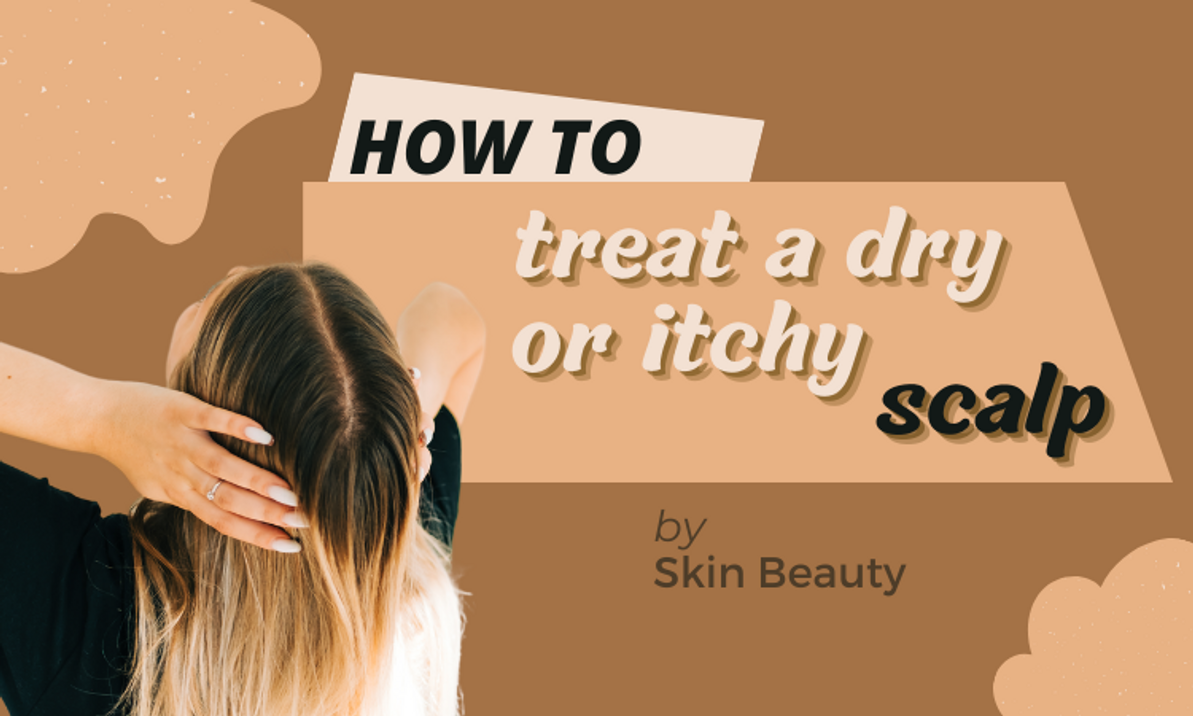How to treat a dry or itchy scalp
To help relieve inflammation or an itchy scalp, you can try several remedies at home. The main signs of a dry scalp are persistent itchiness, but they may also be accompanied by dandruff, soreness, and hair loss. Dry scalp can have several causes, though the most common is a reaction to the change in weather or a harsh ingredient in your hair care products. In addition, something as simple as washing your hair daily or not drinking enough water can cause medical conditions like eczema or psoriasis, which may be why you are more itchy than usual. We've put together some ingredients and recommendations to look for when trying an at-home treatment, no matter the reason.

Ingredients to benefit a dry scalp
Tea tree oil has potent antiseptic, antifungal, and antibiotic properties to help relieve dry scalp and other symptoms. These benefits explain why most shampoos for dandruff have tea tree oil as the main active ingredient.
Where to buy: You can find tea tree oil as a pure essential oil from most drugstores and online at retailers. We recommend Kune So Pure Exfoliating Shampoo.
Use: You can use this product or mix a few drops of tea tree oil with a carrier oil, like olive oil or jojoba oil and massage it into your scalp. Please remember to leave it on for about 10 minutes before washing it out.
Aloe vera has several benefits that can help with a dry scalp. It has anti-inflammatory properties that reduce skin irritation, and it's also an effective moisturizing agent.
Where to buy: You can purchase hair care products containing aloe vera or buy pure aloe vera gel online and in most stores. We recommend Nioxin Relief Smoothing Serum.
Use: Apply it to your scalp and let it sit for about 10 minutes before washing it out.
Apple cider vinegar has several significant health benefits that can reduce symptoms of dry scalp. First, it's antimicrobial, which helps eliminate bacteria or fungi that could cause itchiness. It is also anti-inflammatory, and it can help exfoliate your scalp, which can help treat the dry scalp.
Where to buy: You can purchase apple cider vinegar online and in most stores.
Use: Mix 1 part apple cider vinegar and two parts water and apply it directly to your scalp. Let it sit for about 5 minutes before washing it out with a gentle shampoo, and don't forget to condition your hair after.
Jojoba oil can be an effective moisturizer that can relieve dry scalp quickly. It also has anti-inflammatory properties that may treat skin conditions affecting the scalp.
Where to buy: You can find jojoba oil in stores and online, often in liquid form.
How to use it: To use it for dry scalp, you can add a few drops of jojoba oil to your shampoo, allowing regular hydration and preventing your shampoo from drying out your scalp further.

Scalp massage to relieve an itchy scalp
A scalp massage feels so good, and when your schedule or significant other is unwilling, use an exfoliating scalp brush. First, it's dry brushing for your head. Then, before you wet your hair, work the brush over your scalp and through your strands. It feels incredible, and it will increase circulation and effortlessly loosen any buildup or impurities, making your shampoo way more effective. We recommend using Nioxin Scalp Recovery Purifying Exfoliator.

What to avoid in hair products
Be sure to look at all the ingredients of all your hair products to make sure they don't contain alcohol. Alcohol will dry the scalp a lot; mousse, in particular, is often a sneaky culprit. Other ingredients that can irritate the scalp include sulfate, menthol, and eucalyptus. These ingredients can also be drying and cause an imbalance in the scalp's PH. Finally, make sure not to use too much product when styling your hair. Product build-up can cause the scalp to become oily.

What we learned about curing a dry, itchy scalp
A dry scalp can be uncomfortable, but it's highly treatable. Many cases of dry scalp respond well to a change in your hair care products or routine, and home remedies can certainly help speed up the process. If home remedies have not started to work after two weeks, you can make an appointment with a doctor to ensure there is no underlying health condition requiring prescription treatment. If you notice that you're experiencing hair loss and dry scalp, particularly with sores or blisters, it's also good to check in with a healthcare professional. You can also use a scalp scrub and your hands instead of a brush. Giving yourself a scalp massage while using a scrub will also help stimulate blood flow and encourage hair growth.
Recent Posts
-
The Power of Exosomes in Skincare
Exosomes in Skin Care: The Future of Exosome and Regenerative Medicine in Skin Science Skincare inn …Oct 17th 2025 -
Steps for a Skincare Routine
6 Steps to a Proper Skin Care Routine: Your Esthetician-Approved Guide to The Best Skin If you've ev …Aug 11th 2025 -
Treatment of Hyperpigmentation
How to Treat the Appearance of Hyperpigmentation This Summer: Your Complete Guide Summer sun is wond …Jul 17th 2025




